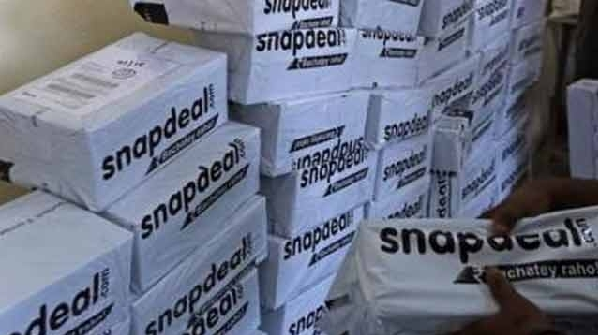
by admin | May 25, 2021 | Branding, Business, Emerging Businesses, Finding Customers, Marketing Basics, Markets, Medium Enterprise, Online Marketing, Sales, SMEs, Technology
 By Anurag Avula,
By Anurag Avula,
Diwali is a great time to start your new online business or to take your existing business online.
So what is your next step? You’ve created your online store, taken some amazing photos of your products and activated an appropriate payment platform. Congratulations, you are up and running. Now you just need to sit back and wait for the customers to come pouring in, right?
Well, yes, in an ideal world — but with the explosion of growth in e-commerce, you still need to make your store stand out from the crowd, grab your customers’ attention, hold it and keep them returning for more. Here are five golden rules to start a successful business this Diwali.
1. Make your site clear and simple to use: When a customer reaches your site it should be obvious what you sell. Use a clean and professional template design that is simple in its message. Don’t allow the customer to be distracted by countless and un-needed information. Show your most popular and best-selling products first as a way to draw people in to start exploring your site. Consider using a “carousel” picture collage so that they can easily scroll through the images and see what’s on offer.
2. It’s the little extras that make a big difference: Free shipping, great returns policy (or free returns over a certain purchase value), a toll free number — making use of incentives to attract users is a great way to encourage loyalty. If you are able to offer these great advantages, make sure you shout about them loud and clear on your homepage.
3. Testimonials and reviews: Take one of your glowing references and put it somewhere obvious on your homepage. If you can accompany this with a picture, it reinforces the fact that real people trust and use your products and services. Customer reviews are trusted 12 times more than marketing by a company
4. Daily deals and other discounts: Daily deals are another hugely popular idea. By selling a limited quantity of products for a short amount of time you can generate new interest and increase your client base. Once you have drawn them in — invite them to preview your other products.
5. Make a connection: Try to re-think your site as a content site that happens to sell products. Talk to your customers as you would to a friend and engage them so that they keep coming back for more. If you can demonstrate that you are passionate about your products and give tips and ideas on ways to use them, such as a demonstration video or a pinboard using your products, it adds more value to your site.
(Anurag Avula is the CEO of goshopmatic.com. The views expressed are personal. He can be contacted at anurag@goshopmatic.com)
—IANS

by admin | May 25, 2021 | Corporate, Corporate Governance, News
 By Aparajita Gupta,
By Aparajita Gupta,
New Delhi : Aiming to give a major push to digital drive, the government is planning to put petrol and
diesel along with its various products on e-commerce platform.
But is it a feasible idea?
Domain experts say it is feasible but high safety measures need to be adopted.
“Can we connect oil with IT and telecommunications? We plan to put all petroleum products on e-commerce platform,” Oil Minister Dharmendra Pradhan said while addressing at the recent India Mobile Congress here.
According to reports, the idea was first floated by Pradhan at a consultative committee meeting of Members of Parliament in Srinagar on April 21.
“It is technically feasible to offer petrol on e-commerce sites and later get it delivered at doorsteps. But it has to be sealed properly and should be handled in a delicate manner. The need for emergency supplies can be met through this channel. It may become a popular product in rural areas where for miles there are no fuel pumps,” Deepak Mahurkar, leader, oil and gas at PricewaterhouseCoopers India told IANS.
Former ONGC Chairman and Managing Director R.S.Sharma also said it’s a workable idea, but emphasised that safety standards should be maintained.
“It is a technically feasible project. It can become highly commercially scaleable model. But safety is a major concern,” Sharma told IANS.
Sharma who is also Chairman of Ficci Hydrocarbon Committee suggested that similar safety measures as petrol pumps should be adopted by delivery persons while pouring petrol into any vehicle.
Industry experts also raised concerns about the price of petrol that will be charged by the e-commerce platforms. They may charge a service fee as fuel will be delivered at doorsteps. On the other hand, if big players com in they might even cut price, trying to gain more market share.
There are around 60,000 fuel retail outlets in India. The size of the entire petroleum industry is aorund Rs 6.5 lakh crore.
On average, 40 million consumers come to retail outlets across the country on a daily basis. If petrol is offered online, then it will surely ease pressure on these retail outlets.
“Technically it is possible. But it has to have a proper dispensing norm. It needs to stick to the norms set by the Petroleum and Explosives Safety Organisation (PESO) to meet safety. Given the way retailing space is becoming precious, e-commerce route can be an alternative route,” Anish De, Partner, infrastructure, government and healthcare and Leader, oil and gas, at KPMG in India told IANS.
He said the concept is likely to gain traction in urban areas too as there are few petrol pumps in the heart of many cities and urbanisation is happening fast.
(Aparajita Gupta can be contacted at aparajita.g@ians.in)
—IANS

by admin | May 25, 2021 | Business, Large Enterprise, Markets, Online Marketing, Sales, SMEs, Social Media, Technology
 New Delhi : It is time again to loosen your purse strings! With attractive deals and huge discounts across various categories on offer, almost all major e-commerce platforms are geared up to commence their sales for the festive season.
New Delhi : It is time again to loosen your purse strings! With attractive deals and huge discounts across various categories on offer, almost all major e-commerce platforms are geared up to commence their sales for the festive season.
While e-commerce giant Flipkart and the online retail platforms it owns — Jabong and Myntra — will start with their five-day-long “Big Billion Days” sales from September 20, Amazon India’s “Great Indian Festival” will begin exclusively for its “Prime” customers on the same day at 12 p.m.
However, the festival sale for all customers of Amazon India will be from September 21 to 24.
“For the first time ever, the Great Indian Festival will start early at 12 noon on September 20 only for ‘Prime’ members,” Manish Tiwary, Vice President, Category Management, Amazon India, told IANS.
“We expect more customers to join the digital ecosystem and shop with us during this festive season. With expanded selection and a robust logistical support system, we are ready to handle the massive customer traffic that we are bound to receive this season,” Tiwary added.
Amazon India will offer deals across several categories, including smartphones, tablets, laptops, large appliances, baby products, clothing and accessories, beauty products, home and kitchen products, furniture and stationery products.
Swati Bhargava, co-founder of CashKaro, said: “What is interesting this time is that earlier, very often it used to be only Flipkart and Amazon trying to announce sales. This time, all the main six to seven e-commerce retailers, like Jabong, Shopclues and Myntra, Paytm Mall… are doing sales on the same day.”
CashKaro, partner to more than 1,500 e-commerce sites, provides its members with cashback offers on their online shopping at various sites like Flipkart, Amazon.in, Paytm, Shopclues and Jabong.
“Typically, we see about a 300 per cent increase in our GMV (gross merchandise volume) which goes through CashKaro during the festive season. Even in September, if we were to compare with the numbers of August, I am sure we will see at least a 300 per cent increment,” Bhargava told IANS.
She added: “We will probably be driving over Rs 100 crore of sales in this month alone to all our partner retailers.”
In online retailing, GMV indicates a total sales dollar value for merchandise sold through a particular marketplace over a certain time frame.
“Also, this time, it is not ‘start of the month’ sale, it is mid-month. There will be a little bit of cash crunch also, which is why this is a good time to bring in cards and EMI offers,” Bhargava added.
Online marketplace ShopClues’ “Maha Bharat Diwali Sale”, which will run from September 20 to 28, will offer a wide range of products with discounts ranging from 50-80 per cent off across the home and kitchen, electronics and accessories, and fashion and lifestyle categories.
“ShopClues aims to achieve 75 per cent plus growth in business over September-October,” said Radhika Aggarwal, Co-Founder and CBO, ShopClues.
“We have also ramped up our associations with top banks, portals and e-wallets, to enable a seamless and delightful shopping experience for our customers during this Diwali,” she added.
In line with the e-commerce giants, Paytm Mall, owned by Paytm Ecommerce, will also launch its first ever festive season sale — “Mera Cashback Sale” — from September 20 to 23.
“This is our first festive season sale and we are expecting 5-6 million new customers on our platform during the four-day sale,” said a Paytm Mall spokesperson.
While the full-on sales are slated to start from Wednesday, some other e-commerce sites such as LimeRoad have their festive sales ongoing.
“LimeRoad introduced ‘The Festive Love Affair’, a collection featuring an array of handpicked kurtas, sarees, suits, heritage jewellery, traditional home décor and a lot more… It is live from September 15 to 26 and caters to both budget buyers and luxury shoppers,” said Suchi Mukherjee, Founder and CEO of LimeRoad.
Mukherjee told IANS that approximately 30 per cent of the total revenue inflow is seen during the festive months.
Flipkart will also run its “Flipkart For India” campaign as part of the sales offer during which it will ship festive gift hampers to the families of army martyrs, and current personnel of the army, Border Security Force and the Central Reserve Police Force, posted in hostile locations away from home.
“The specially-packaged boxes, numbering a few hundred, will contain an assortment of dry fruits and a gift voucher worth Rs 10,000 that can be used to shop on Flipkart,” the company said in a statement.
—IANS

by admin | May 25, 2021 | Corporate Jobs, Employment, Markets, Online Marketing, Private Jobs
 New Delhi : E-commerce giant Amazon India on Monday said it has created over 22,000 seasonal job positions across its network in the country during the upcoming festive season.
New Delhi : E-commerce giant Amazon India on Monday said it has created over 22,000 seasonal job positions across its network in the country during the upcoming festive season.
According to the company, the additional positions have been created at its fulfillment centres, sorting centres, delivery stations and customer service sites in Mumbai, Delhi, Hyderabad, Chennai, Bengaluru, Ahmedabad and many other cities across the country.
“This enhancement will be instrumental in driving an exceptional experience during the upcoming Great Indian Festive Sale. The over 22,000 seasonal associates will help in augmenting our capabilities to serve our customers better and enable us to deliver consistently high levels of customer experience,” said Akhil Saxena, Vice President – India Customer Fulfilment, Amazon India, in a statement.
The statement said associates who have been provided opportunities specifically for the festive season will join the thousands of associates at the company’s 41 fulfillment centres, 15 sorting centers and close to 150 delivery stations across the country.
Amazon has 13 customer service sites across 12 cities and provides voice support for customers in Kannada, English, Hindi, Tamil and Telugu, it added.
—IANS

by admin | May 25, 2021 | Branding, Business, Marketing Basics, Markets, Online Marketing, SMEs, Technology
 By Porisma P. Gogoi,
By Porisma P. Gogoi,
New Delhi : Aiming to ease hurdles faced by small sellers to showcase products online, many e-commerce platforms are offering incentives to bridge the gap by removing intermediaries and delivering products from the small and medium enterprises (SMEs) to consumers.
The country’s customer-to-customer (C2C) market, which is sized at around $5 billion annually, has been largely facilitated by these e-commerce platforms by helping smaller merchants sell from their own websites or by allowing them the facility to sell through other bigger platforms like Amazon and eBay.
“With the introduction of Digital India, current scenario of C2C business in India is quite promising. It is booming,” Priyank Varshney, founder of online handicraft’s store Handikart, told IANS.
“The C2C e-commerce, which is still at a very nascent stage, is evolving and a growing number of start-ups are trying to make their mark by providing a technological platform to the resellers with an intention to organise the space,” he added.
As an online e-commerce platform, Handikart directly procures handcrafted items and products from artisans with instant payment and trades those items online on the website and through online portals like Amazon or eBay.
According to research and consultancy firm Zinnov, the C2C e-commerce market in India is currently pegged at around $9 billion and expected to record a compounded annual growth rate of 60-70 per cent by 2022.
“The Indian SME market is hungry and ambitious to embrace digital but is waiting for someone to take the lead and show the way. While everybody wants to take their business online, they still need a lot of handholding to address their latent barriers… For exactly these reasons, we decided to make our product really easy for them to use,” said Anurag Avula, Chief Executive Officer and Co-founder of international e-commerce company Shopmatic.
Avula said the last quoted size of the market is around 51 million SMEs.
The company helps owners by developing a unique web store to list businesses on marketplaces and social media channels, also giving insights on how to sell online.
“Our entire platform is designed such that people can take pride in building their e-commerce stores with their own hands — just like they build their own businesses,” Avula added.
E-commerce platform Kraftly’s “MySite” is another platform where small-scale sellers can design and integrate a free dedicated website to run their own complete feature-rich website and increase visibility and discoverability for their brand.
“The whole idea behind this is creating a bridge for small sellers to come online. Sellers might be able to market their products very well on the social media, but when it comes to getting orders, we (at Kraftly) have a lot of expertise in being able to optimise digital marketing spend. So, we are able to get orders at much cheaper cost than the sellers are able to do themselves,” said Akshay Ghulati, Chief Business Officer, Kraftly.
Ghulati expressed bullish sentiments on the e-commerce sector, saying: “I think this is right time for the MSME sector to flourish in India. I think GST is going to be a massive boost because cross-state and cross-city selling will become much easier.”
E-commerce has a very important role to play, specially with the SMEs, because large companies have always been able to tackle challenges with people and resources.
“The small sellers traditionally have hesitated and focussed only on the local economy or within states. With e-commerce companies offering logistics and payment solutions, I think in the next two-three years, we will definitely see a lot of growth for online commerce in India,” added Ghulati.
(Porisma P. Gogoi can be contacted at porisma.g@ians.in)
—IANS





